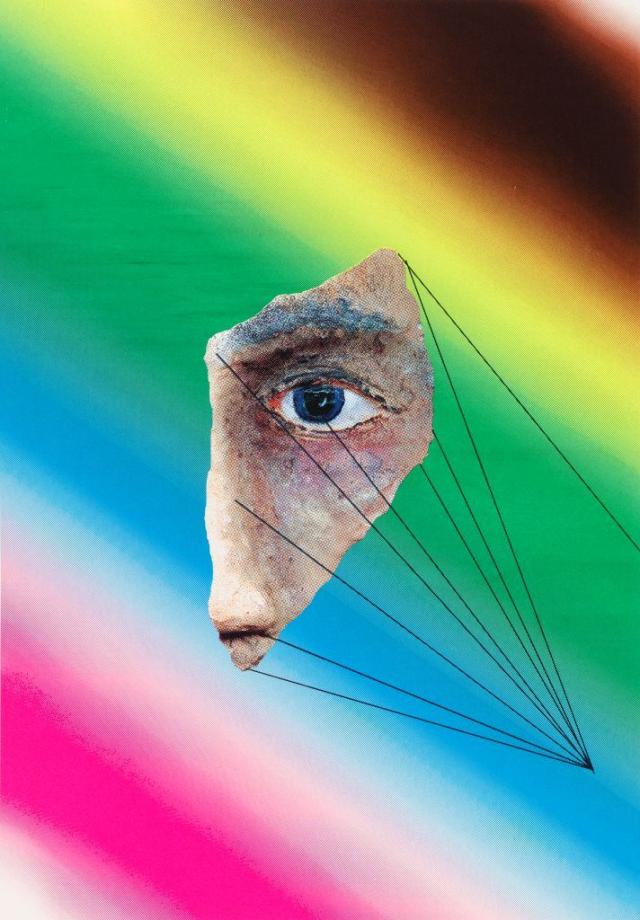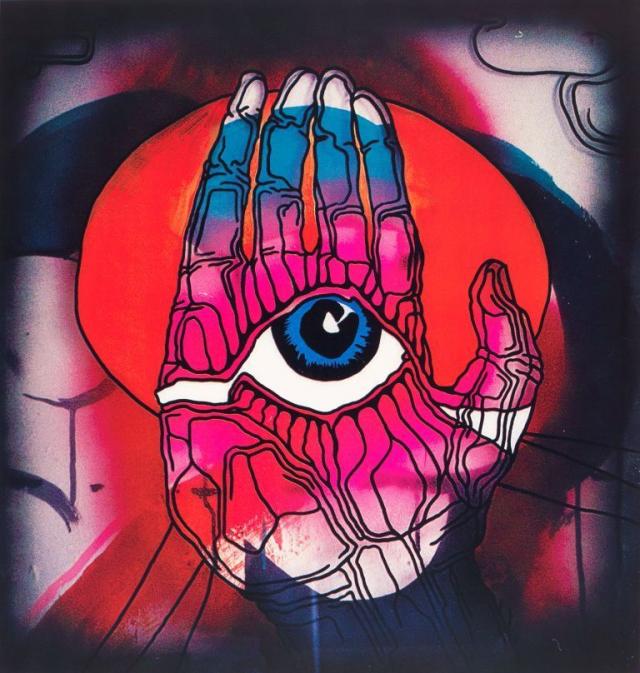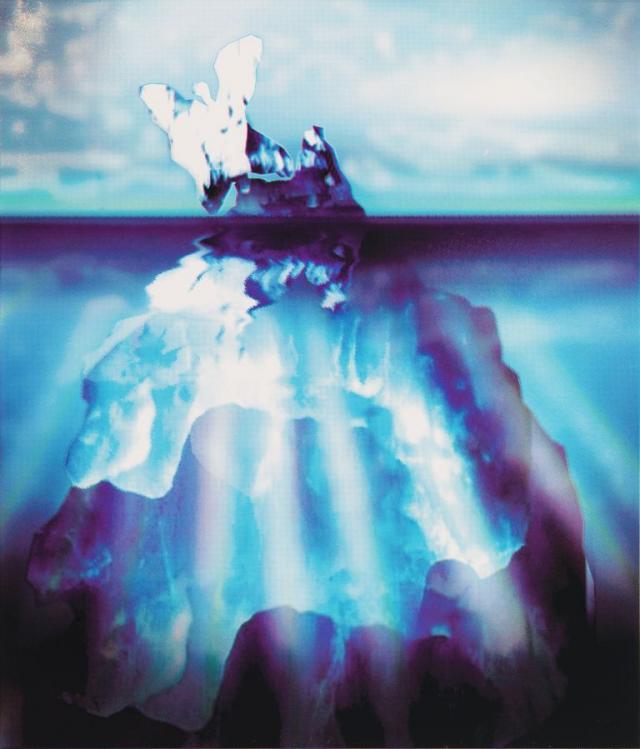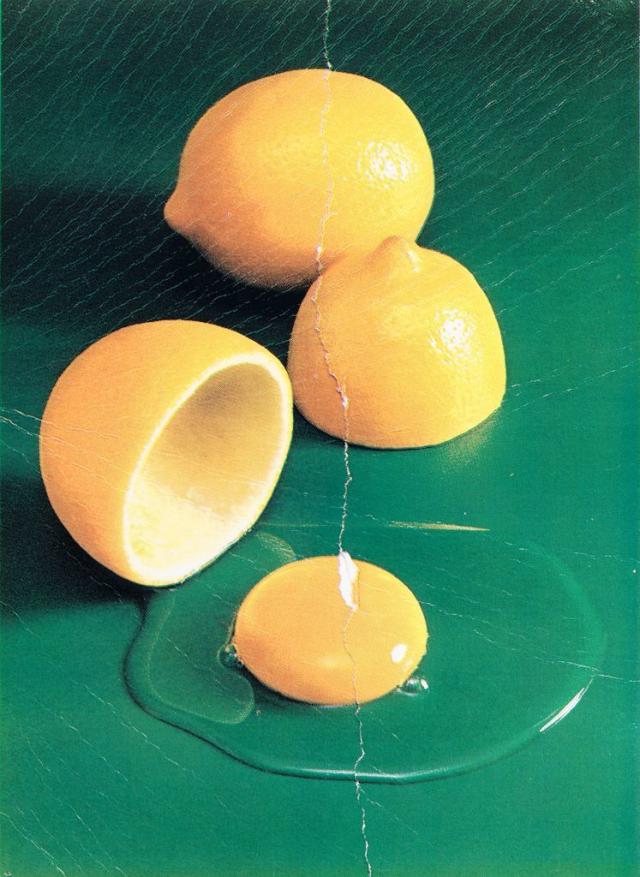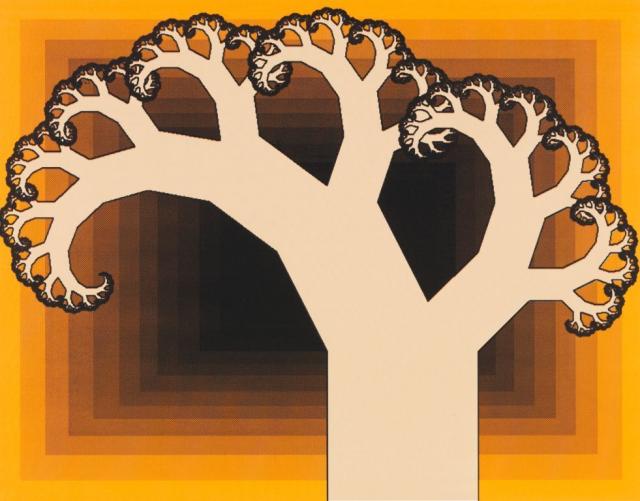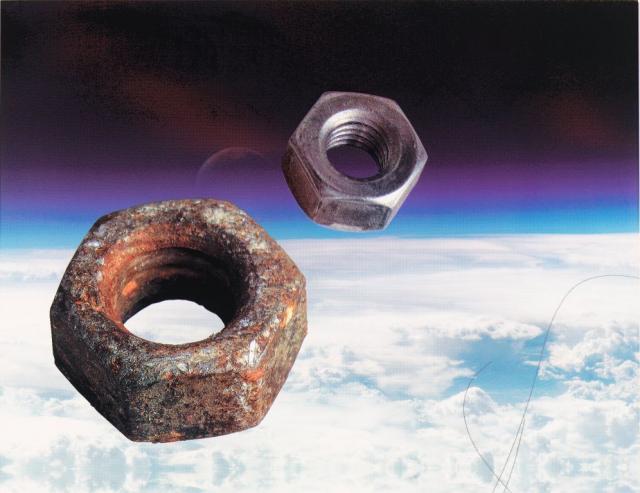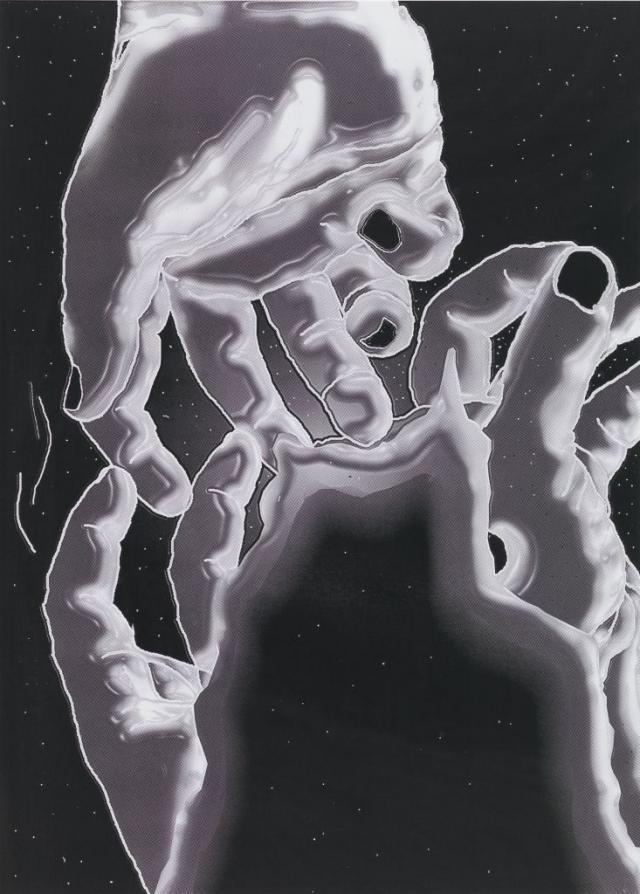Café (2012) returns to a few of the artist’s innumerable compositions that have helped create the posters and invitation cards for his exhibitions over the last fifteen years.
These thirty-eight silkscreens correspond to a journey through the heart of Urs Fischer’s poetic fantasies, depictions that borrow as much from popular and film culture as they do from Baroque enchantments in a permanent dialogue with key figures from recent art history, artists like Franz West, Dieter Roth, Jeff Koons or Martin Kippenberger.
Fischer employs a range of devices and techniques to achieve his ends, manipulating his own drawings, superimposing motifs over found photographs, reinterpreting an aesthetic that springs from kitsch and B-movies, taking inspiration from the history of the United States, and playing off formal collusions and oddities between objects in order to construct a swirling visual tour made up of leaps in scale and mixtures of genres and styles.
His images are evocative and lend themselves to many interpretations, stimulating our capacity for dreams, critical distance and joyful irony. Palazzo Grassi featured this group of works in 2012 during a major retrospective devoted to the artist called Madame Fisscher – a facetious title in the form of an allusion to Marcel Duchamp’s female alter ego, Rrose Sélavy.
These thirty-eight silkscreens correspond to a journey through the heart of Urs Fischer’s poetic fantasies, depictions that borrow as much from popular and film culture as they do from Baroque enchantments in a permanent dialogue with key figures from recent art history, artists like Franz West, Dieter Roth, Jeff Koons or Martin Kippenberger.
Fischer employs a range of devices and techniques to achieve his ends, manipulating his own drawings, superimposing motifs over found photographs, reinterpreting an aesthetic that springs from kitsch and B-movies, taking inspiration from the history of the United States, and playing off formal collusions and oddities between objects in order to construct a swirling visual tour made up of leaps in scale and mixtures of genres and styles.
His images are evocative and lend themselves to many interpretations, stimulating our capacity for dreams, critical distance and joyful irony. Palazzo Grassi featured this group of works in 2012 during a major retrospective devoted to the artist called Madame Fisscher – a facetious title in the form of an allusion to Marcel Duchamp’s female alter ego, Rrose Sélavy.
